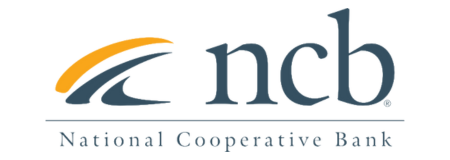EDITOR’S NOTE: This article, authored by Gwen Luu, Partner – Commercial Risk, for JGS Insurance, A Baldwin Risk Partner , a CAI Keystone business partner member, is reprinted by permission of JGS Insurance.
A new artificial intelligence (AI) tool is emerging in the digital universe: quasi-human language processor ChatGPT. ChatGPT is penetrating the AI landscape by producing conversational text and human-like communications. Using a natural language processing system, ChatGPT is able to imitate dialogue, make decisions, and perform a variety of tasks, such as writing, calculating, coding, and automating.
Accessible to anyone with a computer and an internet connection, ChatGPT produces usable written material on a wide range of topics and helps users make decisions. These functions have many employers considering incorporating the technology into their organizations to enhance workflows, streamline operations, and improve customer experience.
While ChatGPT and other AI chatbots can replicate many human-like behaviors and capabilities, they have limitations that can expose organizations to a variety of risks. Before you decide if ChatGPT is the right fit for your organization, there are some limitations and risk factors you should be aware of. These may impact the suitability of the AI language processing tool for your team.
The major limitation ChatGPT has is finite training. After the chatbot has been trained, it does not actively seek new information. In other words, its knowledge base is restricted to resources that were available at the time it was trained. There are also a number of risks to consider, such as errors and outdated information, privacy concerns, intellectual property infringement, and inherent bias issues.
Errors and outdated information
Because ChatGPT’s knowledge base is limited to the information used to train it, it may become unreliable over time and provide information with errors or that is outdated. As a result, employers cannot be certain the information this technology produces is accurate. In some cases, AI-generated errors can be costly, creating liabilities and subjecting organizations to government audits, fines, and penalties.
Privacy concerns
ChatGPT may create privacy concerns for organizations. For example, an employee may share proprietary, confidential, or trade secret information with ChatGPT, which will then become part of its knowledge base and potentially be included in responses to other parties’ prompts. Additionally, chatbots like ChatGPT are internet-based tools, so security can never be guaranteed.
Intellectual property (IP) infringement
AI-generated content can potentially violate IP infringement laws. For example, if ChatGPT generates content similar to existing copyrighted or trademarked material, the organization using that content could be held liable for infringement.
Inherent bias issues
Since humans decide what information is used to train ChatGPT, there is a risk of inherent bias in AI decision making. For example, if an organization uses ChatGPT to make an employment decision and there is an inherent bias, the decision may be prejudiced. This could potentially lead to claims of discrimination.
Managing risk is an important part of any decision, and the incorporation of ChatGPT AI is no different. In order to manage risk with this technology, verify information the program produces, review and update confidentiality agreements to include AI tools, train employees on legal obligations around intellectual property, and limit ChatGPT’s scope for making decisions.
ABOUT THE AUTHOR
Jacobson, Goldfarb & Scott, Inc. (JGS Insurance) was established in 1919 as an Independent Insurance Agency that is privately owned. The two principal owners, Kenneth Hager and Vincent Hager, represent in excess of 40 carriers both national and regional. In October 2021, JGS Insurance partnered with Baldwin Risk Partners to provide a heightened level of service and support to clients in New Jersey, New York, Pennsylvania, and throughout the country. For more information, please visit https://jgsinsurance.com/ or contact Alicia Ambrose at: alicia.ambrose@jgsinsurance.com.




















